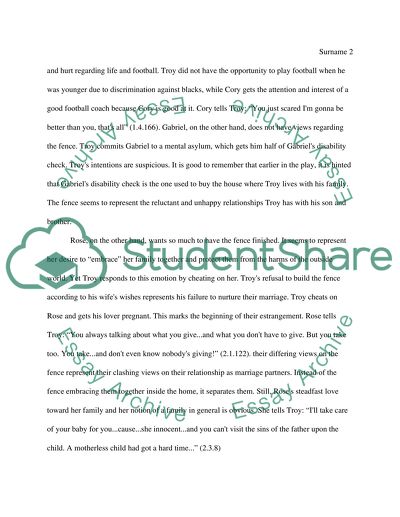Cite this document
(“August Wilson's Imagery of Separation in Fences Essay”, n.d.)
Retrieved from https://studentshare.org/literature/1434149-fences-the-idea-of-seperation
Retrieved from https://studentshare.org/literature/1434149-fences-the-idea-of-seperation
(August Wilson'S Imagery of Separation in Fences Essay)
https://studentshare.org/literature/1434149-fences-the-idea-of-seperation.
https://studentshare.org/literature/1434149-fences-the-idea-of-seperation.
“August Wilson'S Imagery of Separation in Fences Essay”, n.d. https://studentshare.org/literature/1434149-fences-the-idea-of-seperation.


